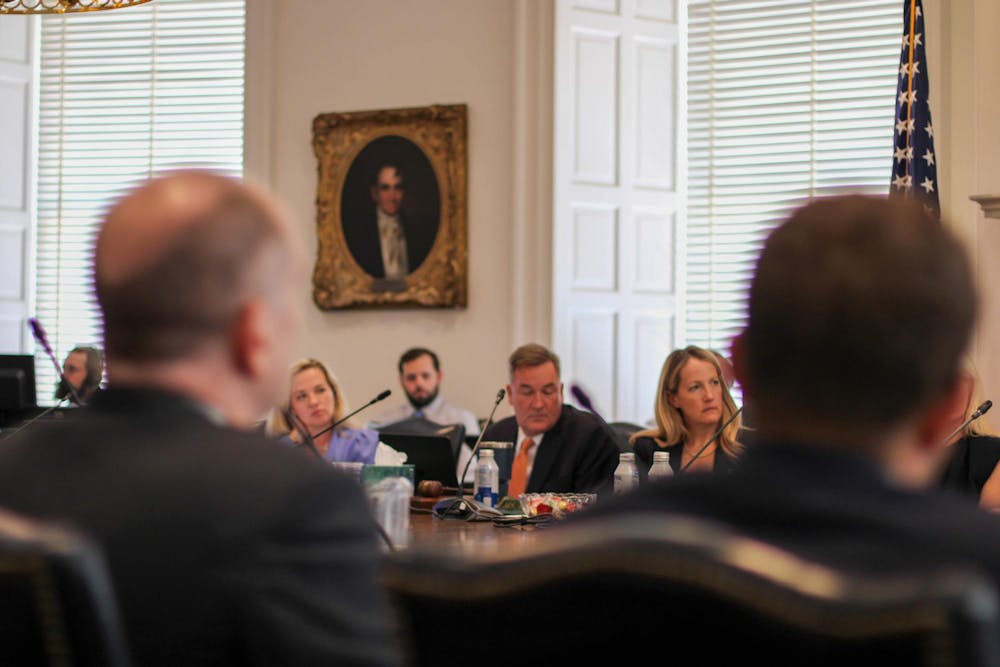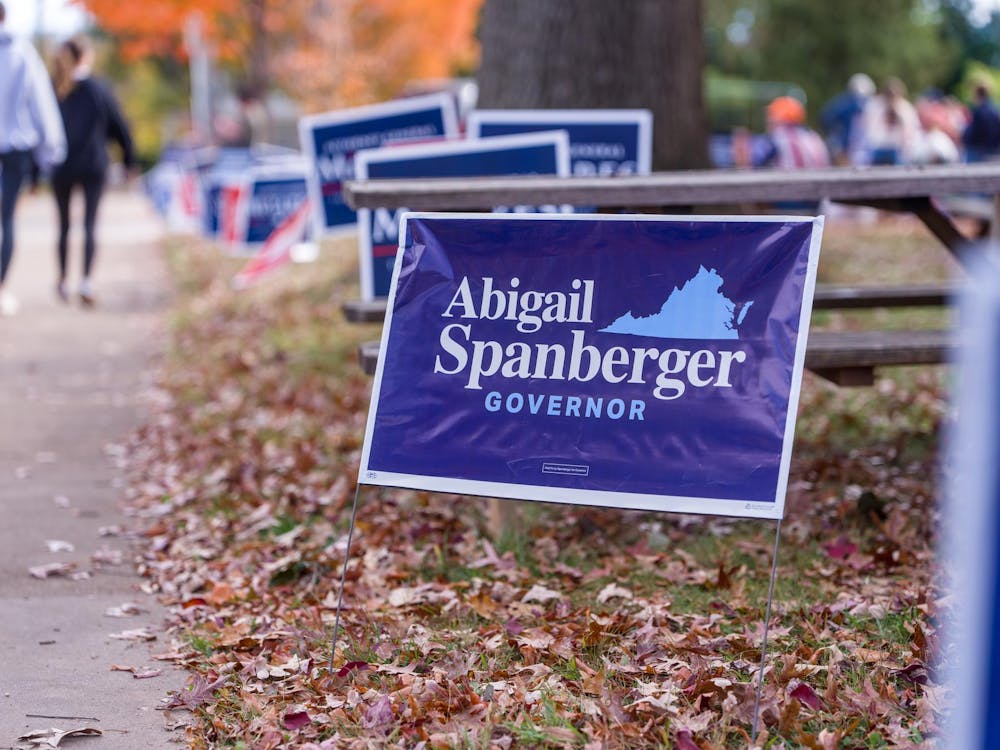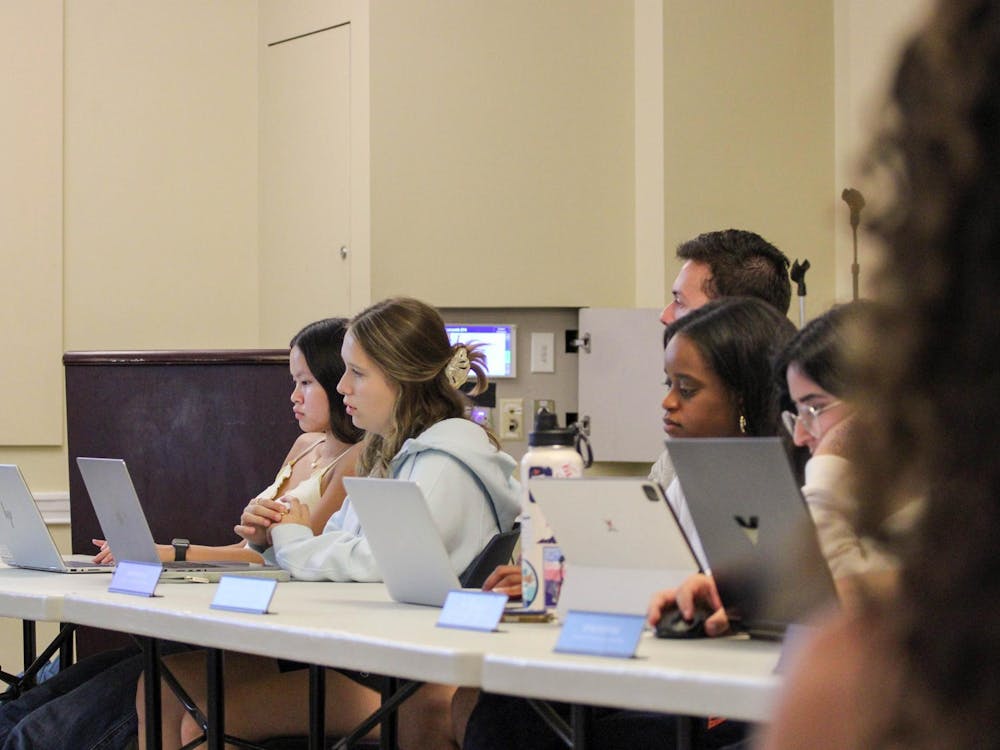The University will again turn to the Boston-based external search firm Isaacson, Miller to lead the national search for its 10th president, Board of Visitors Rector Rachel Sheridan announced Aug. 22. The firm previously assisted in the 2017 search following the resignation of former University President Teresa Sullivan, which ultimately led to the hiring of former University President Jim Ryan.
The Cavalier Daily sent a series of questions to the external search firm to gain a better understanding of how a search firm operates and what they are looking for in the University’s 10th president. University Spokesperson Bethanie Glover responded on behalf of the firm, which will assist the presidential search committee in reviewing and interviewing candidates.
Founded by John Isaacson in 1982, the firm has conducted nearly 10,000 searches across a variety of sectors, according to its website. Isaacson currently serves as the Chair of the firm’s executive committee, while Ericka Miller currently serves as President and CEO, having joined the firm’s leadership team in 2005. Isaacson, Miller notes more than 40 years of experience in presidential searches for institutions such as Duke, Brown, MIT and Amherst College.
The qualities and values of the next University president have been at the forefront of the discussions around the selection process, according to Glover, who noted that the firm already has a list of shared qualities that the community would like to see in the next president, based on feedback collected.
“Ideal presidential qualities are integrity, leadership experience, a demonstrated level of care for the institution, an understanding of the complexity of a university and all its stakeholders, and the skills necessary to manage the institution and its people,” Glover wrote.
When asked how the committee would ensure the next president aligns with the University’s culture, Glover emphasized that the University is already in a strong position.
“It's rare for a university to be this well-positioned for a presidential search, but U.Va.’s consistently high application, retention and graduation rates and devoted alumni community are setting us up for a successful search outcome,” Glover wrote.
With members of the General Assembly voicing worries about further politicization in higher education, The Cavalier Daily asked how those dynamics, along with financial pressures, shape the qualities the committee seeks in a president. In response, Glover emphasized the importance of selecting a leader with the clarity and resilience to steer the University through uncertain times.
“We certainly also want to consider candidates who have demonstrated strategic clarity in challenging times and who have successfully helped their institution navigate rough waters,” Glover wrote. “The higher education landscape can present unexpected challenges at any time, so it's important that we broadly consider how a candidate will guide the University through all of its highs and challenges, currently, and for years to come.”
The Cavalier Daily obtained a copy of the search firm’s 2017 contract through the University’s public contract portal. The contract outlines a timetable and sample work plan that provides critical detail about how a presidential search operates.
According to that plan, the search typically spans about six months, from job posting to final selection. The firm first drafts an ideal candidate description, begins outreach, and starts screening candidates. From that point, the committee receives regular updates and weighs in on potential applicants. According to the University’s presidential search website, the committee’s current stage is developing a presidential profile.
The search committee’s most substantial work comes later in the process. Once the firm identifies an initial pool and completes preliminary interviews, the committee determines who advances. Committee members then spend several days interviewing semi-finalists, while the firm carries out detailed reference checks.
Finalists generally travel to Grounds for public events and a second round of interviews with senior staff and the committee before the Board makes a final selection. The University confirmed a timetable of around 6 months to be accurate.
The 2017 contract also states that Isaacson, Miller charges a retainer equal to one-third of the University president’s estimated first-year compensation, including deferred compensation, signing and performance bonuses, with a minimum fee of $50,000.
During Ryan’s first year as University President, his base compensation was $750,000, with an additional $100,000 bonus. He also received deferred compensation of $150,000. This would place the retainer at over $300,000. According to the contract, the firm said it is also open to negotiating a fixed-fee arrangement.
A new contract has not been made public through the University’s contract portal. The search committee is set to reconvene Monday.







